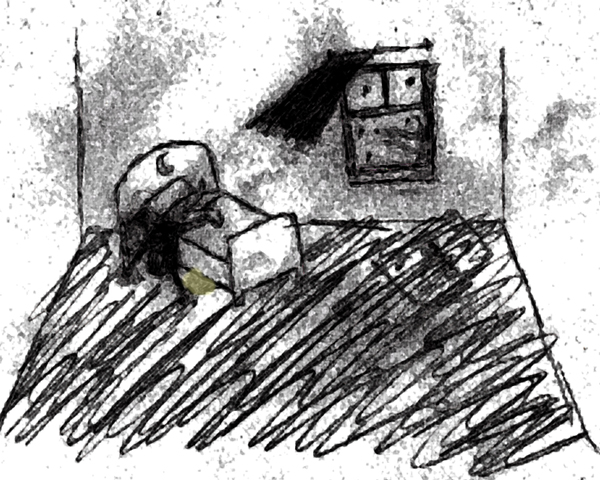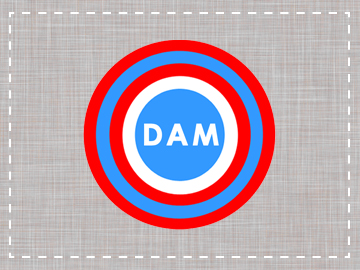An Interview with Fred Leebron
Interview
Do you remember your first short story?
What I remember best was the 8th grade. We had a teacher give us an assignment to write a story and I wrote 5 of them. That’s when I pretty much started. One of the stories went on to win the middle school fiction-writing prize for that year. The story was about a kid who was having a nightmare and woke up and was convinced that someone was breaking into his house and ran to get his parents and no one believed him and there were no footsteps and all this kind of stuff.
So it was sort of a tense story and it ended up that a poster had fallen down in his room and that had created the sound, the illusion of a window opening. He was sort of a sweaty little kid, so he always slept with the window open.
Do you remember where you got the idea for the plot?
It was totally autobiographical. I think some sequencing must have been made up and some of the tensions must have been made up, but the incident did happen.
What’s the one rule as a writer that you never break?
I never use the word chuckle. I don’t believe anyone knows what a chuckle sounds like and I don’t believe a chuckle exists.
What’s the one rule you always break?
Show; don’t tell. If all you did was show and you never told, then you would limit the ambition and the scope of your work.
How do you spot good writing?
I think one way to look for it is in the natural energy and the natural urgency that good storytellers have and the sense that some risk is being taken. Energy, Urgency, and Risk are the three things I look for. And I think that if they are all there, then you are probably in the hands of someone you want to read more of.
How many drafts do you normally go through on a writing project?
Every work is different. My first novel took way too many drafts and my second pretty much only took one draft. Every work determines its own allotment of revision. To me it’s a question of whether you can look yourself in the mirror and say you’ve done everything you could with it given what it is and that you didn’t try to get away with anything.
Which has been the hardest novel to write?
They’ve all been pretty hard. Of the three that I’ve published the first one was hardest in a way that the first draft was 500 pages and I had to edit it down and get all the dross out of it. So just the editing it down from 500 to 250 pages took a year, which was particularly hard.
What was it like watching the film adaptation of your novel Six Figures for the first time?
The first time it was a bit painful, but you sort of get used to it. I read the script and I was very comfortable with it, but it also was weird to see people who only existed in your imagination transform into these actual people on a screen. Then you also have a certain kind of wish for the film, and I always thought that Six Figures was a funnier book than I guess most people thought it was. So I guess I wished for a lighter-themed movie and a more zany soundtrack. The film ended up having a very Bergmanesque quality to it.
What is your favorite short story?
The Metamorphosis.
Favorite Tequila?
I like the Patron but it’s very expensive.
What word processor do you use?
I use MS Word now, but I was a loyal Word Perfect guy until last year. That was my goodluck charm.
What is your favorite word?
A couple years ago I think I actually listed some favorite words and I remember them being: Plump, Dank, Swamp. They were words with a heavy sound and heavy connotation. But my allegiance to that list is long gone.
How would you define post-modernism?
The literal definition of it is after the now. But to me it has always meant something nontraditional, unconventional, and experimental in the craft of the work itself. Something that calls attention to itself and says this is more than what you expect to see on the page.
How does real life interplay with your writing?
I think I like to write from real life predicaments and stretch them to where they break out into something fictive.
What is it about fiction that has always appealed to you?
Two things. One, there are no rules, there are only principles, and you are decider of which principles trump whichever other principle you are weighing that principle against.
And two, no one gets in the way of what you are trying to do, except yourself.
In your new novel you just finished, how is it different from your previous work?
I wanted to try to do something that was all one thing, so that there was no segmentation in terms of chapter breaks or even white space. I wanted to get back to this idea that a novel could be just full of passion. So I had to restrict myself from taking any sort of break from the page. There had to be this constant endless flow until it was exhausted, so every day I would get up and try to write it with this moment of high energy. It was very interesting to try to maintain that energy and to maintain that loyalty to the single-bolt-novel. I thought it was kind of exciting, but now that I’m reading it I don’t know what I think about it yet, I just finished a draft of it a couple days ago.
You were working on this while on sabbatical in Barcelona, how was it there?
It was fantastic; it was the best year we ever had. We met wonderful people and we wrote a lot and it was a real challenge to live there. There was a piece I wrote for Parenting Magazine called, “Living in Small Spaces.” Anytime you go away from the country for a year and you challenge yourself like that, it’s a big slog; it’s as big a slog as writing a book. The new novel I wrote is set entirely in Barcelona. And the city had a constant frenzy to it. It was a very overheated city; it had a density of population, of humanity, the likes of which I’ve never seen before.
What would you have done besides fiction?
I was supposed to go to a 5 year medical school program out of Bryn Mawr college, I was supposed to take the LSATs about 79 different times. I would have probably just gone to law school like everybody else.
Recently a colleague in another department asked me in the hall if I really liked reading all those papers from my students? And I told him, “Are you kidding, I love reading my students’ work and being part of their creative development and just getting to feel that creativity everyday. Everyday is a surprise.” And you know what he said, “You have a better job than I do.”.
Do you have any short fiction pieces to share?
“Two Germanys” is a short-short based on a writing assignment we did in class recently called Twenty Little Fiction Projects, which is coincidentally based on another exercise called Twenty Little Poetry Projects.
TWO GERMANYS
By Fred Leebron
His liver hurt. He’d begun to drink heavily the summer after eighth grade, and tomorrow he would be forty-six. It had to be the drinking. He wondered what his liver looked like. His mother had told him not to dare imagine something so gruesome. Listen to me, his liver was saying. He and his liver were sitting at his desk in his office on the second floor of the neofederalist building at the corner of Washington and Lincoln.
But his liver couldn’t talk, it could only throb. It throbbed like his baby son’s heart when he clutched him to his chest, while downstairs his wife cursed at the dishes in the sink and his son cursed at the PS-2 game on the big screen television and his daughter cursed at her overage boyfriend’s latest I.M. flitting across the flat screen monitor of the family’s almost new computer. If he could just clutch his baby every second of his life everything would stop, if he could just clutch his baby every second of his life he could stop. Today he was not yet forty-six. Tomorrow he vowed he would be thirteen again, along the railroad tracks in that small town in Germany, when he and his friend had lined up bottles of warm beer ready for drinking, and he would make a different decision. That coarse beer, like the stubble of some older unshaven man’s cheek.
“Vorsicht bei der Abfahrt,” the loudspeaker said whenever a train pulled out from the station. Tomorrow he would be thirteen and the internet would not exist and Sony Playstation Two would not exist. A chariot would gallop toward the sun desperate to burn its single rider. Singed pieces of him would thump to the ground, tiny specks of him would linger in the air. A doctor had told him once that you could live with very little liver, but that had not been about him, that had been about his sister. And she had died. Passed. Carried off in a liver coma. A beautiful thing, the doctor reassured him, for his patients who had emerged from such a coma had told him it had been a beautiful thing. And this too had happened in Germany.
Close


